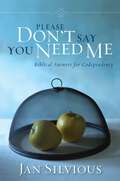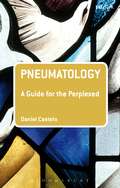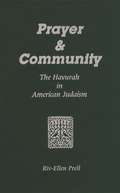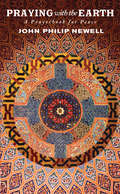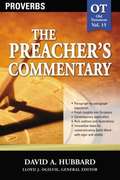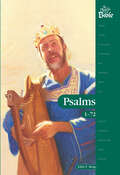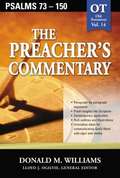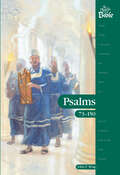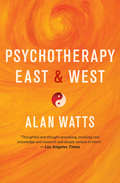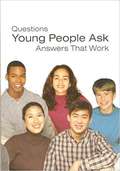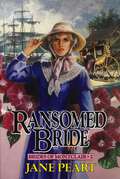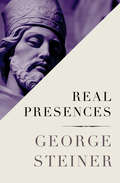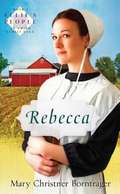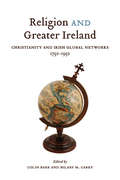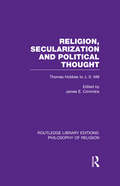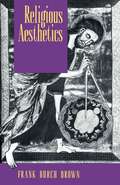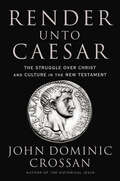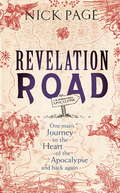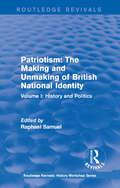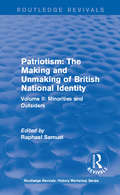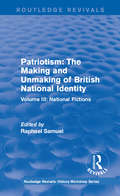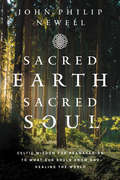- Table View
- List View
Please Don't Say You Need Me: Biblical Answers for Codependency
by Jan SilviousPlease Don’t Say You Need Me . . . is a common plea voiced by people trapped in unhealthy, codependent relationships. Confused by their conflicting emotions, they feel trapped between wanting to love and care for someone else and yet, at the same time, needing to escape from that person’s intense and suffocating demands for self-esteem. Jan Silvious offers practical, biblical answers for those dealing with codependency—actually, people-dependency—that can exist between mates, siblings, parents and children, and friends. · Who is the codependent person? · What is a codependent relationship? · What role does guilt play in a codependent relationship? · Can Christians be codependent? Jan Silvious answers these questions and shows readers how to identify and break the cycle of a codependent relationship in a loving, scriptural manner. Here is insight, hope, and encouragement for replacing unhealthy ways of relating with a new approach that can bring balance and wholeness.
Pneumatology: A Guide for the Perplexed (Guides for the Perplexed)
by Daniel CasteloThis guide aims to elaborate and constructively engage some of the ongoing dogmatic challenges within the field of Christian pneumatology. Rather than a strict survey, the book largely represents a collection of working proposals on a number of relevant themes, including cosmology, mediation, the nature and role of Spirit-baptism, and discernment. <P><P> For those who have found pneumatology frustrating and confusing, the book can serve as an aid to clarify some of the most crucial matters at stake in the doctrine of the Holy Spirit and in turn provide some ways forward amidst the morass of possibilities available.
Prague Counterpoint (The Zion Covenant Series #2)
by Bodie Thoene Brock ThoeneIn this sequel to the Vienna Prelude, Elisa Lendheim is caught in the center of violence that sweeps Europe as Hitler's plan to annihilate the Jews unfolds. <P><P> Book 2, Zion Covenant series.
Prayer & Community: The Havurah in American Judaism
by Riv-Ellen PrellRiv-Ellen Prell spent eighteen months of participant observation field research studying a countercultural havurah to determine why these groups emerged in the United States during the 1970s. In her book, she explores the central questions posed by the early havurot and their founders. She also examines the havurah as a development of American Judaism, continuing-rather than rejecting-many of the previous generations' ideas about religion. Combining history and ethnography, Prell uses current theories about ritual and prayer to understand men's and women's struggles with their religious tradition and their desire to create community.
Praying with the Earth: A Prayerbook for Peace
by J. Philip NewellWe as Jews, Christians, and Muslims share a common spiritual descent, yet painful divisions between us lie at the center of much conflict and war in the world today. Praying with the Earth: A Prayerbook for Peace articulates the deep longings for peace that unite these great spiritual traditions. For each morning and evening of the week, John Philip Newell provides strikingly beautiful and profound prayers that call us to be the people Jesus named blessed: “those who know their need,” “those who weep,” “the humble,” “those who hunger for earth’s oneness,” “the forgiving,” “the clear in heart,” and “the peacemakers.” Whether prayed alone or with others, these richly illustrated, simple liturgies invite and inspire us to live as those whose hearts yearn for peace.
Preparation for Total Consecration
by St. Louis-Marie de MontfortA guidebook of Saint Louis-Marie Grignion de Montfort's spirituality of total consecration published by the religious community founded by Saint de Monfort himself. This book takes you through the 33 days of preparing to consecrate oneself to Jesus through Mary.
Proverbs (Preacher's Commentary, Volume #15)
by David A. HubbardA chapter by chapter and verse by verse explication of the book of Proverbs. The book contains detailed examples, a chapter by chapter outline, and an index of the proverbs.
Psalms 1-72 (The People's Bible)
by John F BrugWhat are the psalms?This volume begins The People’s Bible commentary on the Book of Psalms and covers the first 72 psalms. King David, a gifted poet and musician, composed many of these psalms—these hymns of praise, lament, and thanksgiving—to express his faith in the Lord. His psalms have come to be treasured by believers throughout the centuries for their depth of faith and their beauty.Want to learn more? If you’re wondering what the book of Psalms is all about, this helpful resource is for you!Psalms 1-72 is a reliable Bible commentary. It’s down to earth, clearly written, easy to read and understand, and filled with practical and modern applications to Scripture.It also includes the complete text of the first 72 psalms of the book of Psalms from the NIV Bible. The Christ-centered commentaries following the Scripture sections contain explanations of the text, historical background, illustrations, and archaeological information. Psalms 1-72 is a great resource for personal or group study!This book is a part of The People’s Bible series from Northwestern Publishing House.
Psalms 73-150 (Preacher's Commentary, Volume #14)
by Donald M. WilliamsGeneral editor Lloyd J. Ogilvie brings together a team of skilled and exceptional communicators to blend sound scholarship with life-related illustrations. The design for the Preacher's Commentary gives the reader an overall outline of each book of the Bible. Following the introduction, which reveals the author's approach and salient background on the book, each chapter of the commentary provides the Scripture to be exposited. The New King James Bible has been chosen for the Preacher's Commentary because it combines with integrity the beauty of language, underlying Hebrew and Greek textual basis, and thought-flow of the 1611 King James Version, while replacing obsolete verb forms and other archaisms with their everyday contemporary counterparts for greater readability. Reverence for God is preserved in the capitalization of all pronouns referring to the Father, Son, or Holy Spirit. Readers who are more comfortable with another translation can readily find the parallel passage by means of the chapter and verse reference at the end of each passage being exposited. The paragraphs of exposition combine fresh insights to the Scripture, application, rich illustrative material, and innovative ways of utilizing the vibrant truth for his or her own life and for the challenge of communicating it with vigor and vitality.
Psalms 73-150 (The People's Bible)
by John F BrugWhat are the psalms in the bible?This volume continues The People’s Bible commentary on the Book of Psalms and covers Psalms 73-150. These psalms are the inspiring works of various authors, including David, Moses, Asaph, and the sons of Korah. Some psalm collections in the volume include the Passover Hallel (113-118), the Songs of Ascents (120-134), and the Hallelujah Psalms (146-150).Want to learn more? If you’re wondering what the book of Psalms is all about, this helpful resource is for you!Psalms 73-150 is a reliable Bible commentary. It’s down to earth, clearly written, easy to read and understand, and filled with practical and modern applications to Scripture.It also includes the complete text of Psalms 73-150 from the book of Psalms from the NIV Bible. The Christ-centered commentaries following the Scripture sections contain explanations of the text, historical background, illustrations, and archaeological information. Psalms 73-150 is a great resource for personal or group study!This book is a part of The People’s Bible series from Northwestern Publishing House.
Psychotherapy East & West
by Alan WattsBefore he became a counterculture hero, Alan Watts was known as an incisive scholar of Eastern and Western psychology and philosophy. In this 1961 classic, Watts demonstrates his deep understanding of both Western psychotherapy and the Eastern spiritual philosophies of Buddhism, Taoism, Vedanta, and Yoga. He examined the problem of humans in a seemingly hostile universe in ways that questioned the social norms and illusions that bind and constrict modern humans. Marking a groundbreaking synthesis, Watts asserted that the powerful insights of Freud and Jung, which had, indeed, brought psychiatry close to the edge of liberation, could, if melded with the hitherto secret wisdom of the Eastern traditions, free people from their battles with the self. When psychotherapy merely helps us adjust to social norms, Watts argued, it falls short of true liberation, while Eastern philosophy seeks our natural relation to the cosmos.
Questions Young People Ask, Answers That Work: Volume 1
by Watch Tower Bible Tract Society of PennsylvaniaThis book explores many of the problems that face teenagers and their respective families today. It is documented with excerpts from psychologists and more importantly shows the practicality of following the instructions given by the Creator of mankind himself. It is not as restrictive as many would have us believe.
Ransomed Bride: Book 2 (Brides of Montclair #2)
by Jane Peart"I won't lose you now!" said Cam in a voice ragged with emotion. The moon moved across the sky from behind the sheltering trees, and suddenly the two of them were enveloped in moonlight. "I love you, and yet I know I have no right to speak to you of this. I'm not free. I’m engaged--" "Oh, Cam, don’t!" she begged. "It cannot be. It is too late. There is no way--" A tremor coursed through her -- a premonition of danger. This was madness, she knew. The two were as much star-crossed lovers as Romeo and Juliet, theirs as forbidden a love by all the same barriers of family, church, and honor. "There has to be a way. There must be. We'll find a way!" Cam declared as he drew her into his arms. "Cam, let me go. We must forget this ever happened." "How can we?" he asked in anguish. Ransomed Bride is a historical romance that brings to life a young couple's choice between duty and love.
Real Presences: Is There Anything In What We Say?
by George SteinerRenowned scholar George Steiner explores the power and presence of the unseen in art. &“It takes someone of [his] stature to tackle this theme head-on&” (The New York Times). There is a philosophical school of thought that believes the presence of God in art, literature, and music—in creativity in general—is a vacant metaphor, an eroded figure of speech, a ghost in humanity&’s common parlance. George Steiner posits the opposite—that any coherent understanding of language and art, any capacity to communicate meaning and feeling, is premised on God. In doing so, he argues against the kind of criticism that obscures, instead of elucidates, meaning. From the power of language to vital philosophical tenets, Real Presences examines the role of meaning and of the spiritual in art throughout history and across cultures.
Rebecca (Ellie's People #2)
by Mary Christner Borntrager[From the back cover:] Spirited and inquisitive, so like her mother, this youngest daughter of David and Ellie Eash struggles with the complexities of growing up Amish. Rebecca finds a true friend in Susan Miller. Then she is torn between love for Susan's brother James, a Mennonite boy, and loyalty to her parents and the traditions of her Amish church. Live with Becky through a harvest, a child's death, a fire, a barn raising, a car-buggy wreck, a taffy pull and singing, a deacon's visit, a quilting bee, and her own wedding. Search with Becky as she questions lifestyles of the Amish, the Mennonites, and the "English" people for whom she works as a maid. Look for mor books in the Ellie's People series from the Bookshare Library including: #1. Ellie, #3. Rachel, #4. Daniel, #5. Reuben and #6. and Andy.
Religion and Greater Ireland
by Hilary M. Carey Colin BarrImpelled by economic deprivation at home and spiritual ambition abroad, nineteenth-century Irish clerics and laypeople reshaped the many sites where they came to pray, preach, teach, trade, and settle. So decisive was the role of religion in the worlds of Irish settlement that it helped to create a "Greater Ireland" that encompassed the entire English-speaking world and beyond. Rejecting the popular notion that the Irish were passive victims of imperial oppression, Religion and Greater Ireland demonstrates how religion opened up a vast world to exploit. The religious free market of the United States and the British Empire provided an opportunity and a level playing-field in which the Irish could compete and thrive. Contributors to this collection show how the Irish of all denominations contributed to the creation and extension of Greater Ireland through missionary and temperance societies, media, and the circulation of people, ideas, and material culture around the world. Essays also detail the diverse experiences of Irish immigrants, whether they were Catholics or Protestants, clergy or laypeople, women or men, in sites of settlement and mission including the United States, Canada, South Africa, Asia, Australia, New Zealand, and Ireland itself. Seeking to illuminate the interconnections and commonalities of the Irish migrant experience, Religion and Greater Ireland provides fascinating insight into the range of influences that Ireland's religions have had on the world beyond the British Isles.
Religion and Greater Ireland: Christianity and Irish Global Networks, 1750-1969 (McGill-Queen's Studies in the History of Religion)
by Hilary M. Carey Colin BarrImpelled by economic deprivation at home and spiritual ambition abroad, nineteenth-century Irish clerics and laypeople reshaped the many sites where they came to pray, preach, teach, trade, and settle. So decisive was the role of religion in the worlds of Irish settlement that it helped to create a "Greater Ireland" that encompassed the entire English-speaking world and beyond. Rejecting the popular notion that the Irish were passive victims of imperial oppression, Religion and Greater Ireland demonstrates how religion opened up a vast world to exploit. The religious free market of the United States and the British Empire provided an opportunity and a level playing-field in which the Irish could compete and thrive. Contributors to this collection show how the Irish of all denominations contributed to the creation and extension of Greater Ireland through missionary and temperance societies, media, and the circulation of people, ideas, and material culture around the world. Essays also detail the diverse experiences of Irish immigrants, whether they were Catholics or Protestants, clergy or laypeople, women or men, in sites of settlement and mission including the United States, Canada, South Africa, Asia, Australia, New Zealand, and Ireland itself. Seeking to illuminate the interconnections and commonalities of the Irish migrant experience, Religion and Greater Ireland provides fascinating insight into the range of influences that Ireland’s religions have had on the world beyond the British Isles.
Religion, Secularization and Political Thought: Thomas Hobbes to J. S. Mill (Routledge Library Editions: Philosophy of Religion)
by James E. CrimminsThe increasing secularization of political thought between the mid-seventeenth and mid-nineteenth centuries has often been noted, but rarely described in detail. The contributors to this volume consider the significance of the relationship between religious beliefs, dogma and secular ideas in British political philosophy from Thomas Hobbes to J.S. Mill. During this period, Britain experienced the advance of natural science, the spread of education and other social improvements, and reforms in the political realm. These changes forced religion to account for itself and to justify its existence, both as a social institution and as a collection of fundamental articles of belief about the world and its operations. This book, originally published in 1990, conveys the crucial importance of the association between religion, secularization and political thought.
Religious Aesthetics: A Theological Study of Making and Meaning
by Frank BrowningMany modes of religious expression and experience have a markedly aesthetic component, even though aesthetic delight itself often appears to be free of moral or religious interests. In this ground-breaking work, Frank Burch Brown shows how aesthetics, no less than ethics, can play a central role in the study of religion and in the practice of theology.
Render Unto Caesar: The Struggle Over Christ and Culture in the New Testament
by John Dominic CrossanThe revered Bible scholar and author of The Historical Jesus explores the Christian culture wars—the debates over church and state—from a biblical perspective, exploring the earliest tensions evident in the New Testament, and offering a way forward for Christians today.Leading Bible scholar John Dominic Crossan, the author of the pioneering work The Historical Jesus, provides new insight into the Christian culture wars which began in the New Testament and persist strongly today. For decades, Americans have been divided on how Christians should relate to government and lawmakers, a dispute that has impacted every area of society and grown more rancorous over the past forty years. But as Crossan makes clear, this debate isn’t new; it can be found in the New Testament itself, most notably in the tensions between Luke-Acts and Revelations. In the texts of Luke-Acts, Rome is considered favorably. In the book of Revelations, Rome is seen as the embodiment of evil in the world. Yet there is an alternative to these two extremes, Crossan explains. The historical Jesus and Paul, the earliest Christian teachers, were both strongly opposed to Rome, yet neither demonized the Empire. Crossan sees in Jesus and Paul’s approach a model for Christians today that can be used to cut through the acrimony and polarization roiling our society and dividing us.
Revelation Road: One man's journey to the heart of apocalypse – and back again
by Nick PageIf you're reading this, we're still alive. The end of the world has not occurred. But it can't be long now, can it?For two thousand years, the Book of Revelation has inspired countless conspiracy theorists, film-makers, writers and artists, as well as theologians and teachers. But why are we so bothered? After all, the end of the world still hasn't turned up, and it's been quite a while now.When Nick Page wanted to get to the bottom of what this mysterious book is really all about, he realised there was only one way to go about it: he had to go to the land of apocalypse. Travelling to Patmos via the ruined cities of the seven churches of Revelation, determined to seek out a revelation of his own, Nick explores the culture behind Revelation, who wrote it, why they wrote it, and what it means for us today.Mixing history, commentary, creative reconstruction and sun-crazed travelogue, here at last is the (perhaps not quite) final word on heaven, hell, the four horsemen of the apocalypse - and why the end of the world never does turn up when it's supposed to.
Routledge Revivals: Volume I: History and Politics (Routledge Revivals: History Workshop Series)
by Raphael SamuelFirst published in 1989, this is the first of three volumes exploring the changing notions of patriotism in British life from the thirteenth century to the late twentieth century and constitutes an attempt to come to terms with the power of the national idea through a historically informed critique. This volume deals with the role of politics, history, religion, imperialism and race in the formation of English nationalism. In chapters dealing with a wide range of topics, the contributors demystify the prevailing conceptions of nationalism, suggesting ‘the nation’ has always been a contested idea, and only one of a number of competing images of collectivity.
Routledge Revivals: Volume II: Minorities and Outsiders (Routledge Revivals: History Workshop Series)
by Raphael SamuelFirst published in 1989, this is the second of three volumes exploring the changing notions of patriotism in British life from the thirteenth century to the late twentieth century and constitutes an attempt to come to terms with the power of the national idea through a historically informed critique. This volume examines how national identity has competed with alternative, more personal forms of belonging — such as Roman Catholicism, Judaism and Nonconformism — as well looking at femininity in relation to the state. Contemporary British society’s capacity to create outsiders is discussed and the introductory essay shows how this may shape our misunderstanding of earlier phases of national development.
Routledge Revivals: Volume III: National Fictions (Routledge Revivals: History Workshop Series)
by Raphael SamuelFirst published in 1989, this is the third of three volumes exploring the changing notions of patriotism in British life from the thirteenth century to the late twentieth century and constitutes an attempt to come to terms with the power of the national idea through a historically informed critique. This volume studies some of the leading figures of national myth, such as Britannia and John Bull. One group of essays looks at the idea of distinctively national landscape and the ways in which it corresponds to notions of social order. A chapter on the poetry of Edmund Spenser explores metaphorical representations of Britain as a walled garden, and the idea of an enchanted national space is taken up in a series of essays on literature, theatre and cinema. An introductory piece charts some of the startling changes in the image of national character, from the seventeenth-century notion of the English as the most melancholy people in Europe, to the more uncertain and conflicting images of today.
Sacred Earth, Sacred Soul: Celtic Wisdom for Reawakening to What Our Souls Know and Healing the World
by John Philip NewellA leading spiritual teacher reveals how Celtic spirituality—listening to the sacred around us and inside of us—can help us heal the earth, overcome our conflicts, and reconnect with ourselves.John Philip Newell shares the long, hidden tradition of Celtic Christianity, explaining how this earth-based spirituality can help us rediscover the natural rhythms of life and deepen our spiritual connection with God, with each other, and with the earth. Newell introduces some of Celtic Christianity’s leading practitioners, both saints and pioneers of faith, whose timeless wisdom is more necessary than ever, including: Pelagius, who shows us how to look beyond sin to affirm our sacredness as part of all God’s creation, and courageously stand up for our principles in the face of oppression.Brigid of Kildare, who illuminates the interrelationship of all things and reminds us of the power of the sacred feminine to overcome those seeking to control us.John Muir, who encourages us to see the holiness and beauty of wilderness and what we must do to protect these gifts.Teilhard de Chardin, who inspires us to see how science, faith, and our future tell one universal story that begins with sacredness.By embracing the wisdom of Celtic Christianity, we can learn how to listen to the sacred and see the divine in all of creation and within each of us. Human beings are inherently spiritual creatures who intuitively see the sacred in nature and within one another, but our cultures—and at times even our faiths—have made us forget what each of us already know deep in our souls but have learned to suppress. Sacred Earth, Sacred Soul offers a new spiritual foundation for our lives, once centered on encouragement, guidance, and hope for creating a better world.
